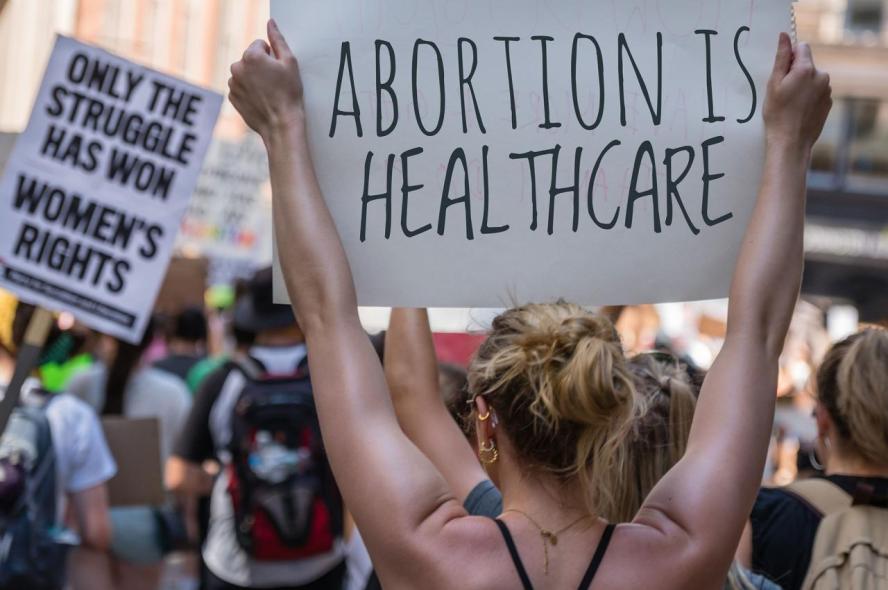-
About
- Departments & Offices
-
Academics
- Physician Assistant
- Special Master’s (MBS)
-
Admissions & Financial Aid
- Tuition & Fees
-
Student Life
-
- Student Resources by Program
- Academic & Student Support
- Wellness & Wellbeing
- Student Experience
- Events & Traditions
-
-
Research
- Research Labs & Centers
-
Local & Global Engagement
- Global Health Programs
- Community Engagement
‘No Part of This Overturn Is Positive’: Maternal Health Experts on the Supreme Court’s Abortion Decision
A clinician and two public health experts at Tufts University School of Medicine reflect on what the overturning of Roe v. Wade means for the future of maternal health

More than two months after the Supreme Court overturned Roe v. Wade, abortion is now banned in 12 states, with additional bans expected to take effect soon. Some state supreme courts will decide the legality of abortion in places where bans were blocked by lawsuits and appeals.
In Massachusetts, abortion is legal, and Governor Charlie Baker recently signed legislation further protecting providers, patients, and people who need to travel to the state for care from legal repercussions. Still, despite local protection, maternal health care providers and advocates at Tufts University School of Medicine say that the overturning of Roe v. Wade is extremely problematic.
“No part of this overturn is positive,” says Ndidiamaka Amutah-Onukagha, the Julia A. Okoro Professor in Black Maternal Health at Tufts University School of Medicine and director of the Center for Black Maternal Health and Reproductive Justice (CBMHRJ) at Tufts University. “For women of color who were already in a pandemic of racism prior to the COVID-19 pandemic, this is another layer that further exacerbates underlying disparities and that will leave them disproportionately impacted."
She notes that red states and rural states already have a lack of women’s health care providers—a problem that will worsen because of the court’s ruling.
“When you're talking about health, you’re talking about politics. They're very much intertwined, especially in this country,” says Vanessa Nicholson, assistant professor of public health and community medicine at Tufts University School of Medicine. Additionally, Nicholson is the MOTHER Lab Unit Lead within the CBMHRJ and the Chief Report Editor of the Report of the Special Commission on Racial Inequities in Maternal Health for the Commonwealth of Massachusetts. “Many of the people who put the laws in place are not health professionals. That’s not to say health professionals should be the only professional community to make the decisions, but they definitely can help inform policy makers as they're making these decisions, because there's an intersection.”
Tufts Now recently spoke with Amutah-Onukagha, Nicholson, and physician Erika Werner, chair of the obstetrics and gynecology department and the Louis E. Phaneuf Teaching and Research Professor of Gynecology at the School of Medicine, and chief of obstetrics and gynecology at Tufts Medical Center, about what the abortion ruling means for the future of women’s reproductive health.